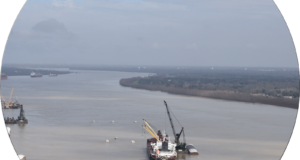The port industry understands it can’t continue to depend on on-the-job training alone to prepare the next generation of leaders for the significant responsibilities they will assume.
By Erik Stromberg, Lamar University
Generations of port industry leaders have bemoaned the fact that the only way to learn how to manage a port was to manage a port. However, on-the-job training cannot alone prepare the next generation of leaders for the significant responsibilities they will assume. The wide range of aptitudes and knowledge needed by today’s port and marine terminal manager cross multiple disciplines, with many of those fields undergoing rapid innovation and transformative change. The port management ‘equation’ is as dynamic and complex as it has ever been. Tomorrow’s industry leaders need not only practical knowledge but also the theoretical foundation and analytical skills with which to understand and prepare for the future. Furthermore, the educational systems needed to prepare the next generation of port leaders must be tailored to the ways that our future leaders learn. The past must not be the prologue.
AAPA’s Professional Port Manager Certification (PPM) program, implemented in the late 1990s during my tenure as AAPA CEO, addresses the need to better train and educate up-and-coming port professionals. The educational framework is empirical and pragmatic. The PPM program depends on industry experts sharing their knowledge and experiences with younger professionals. Conferences and seminars facilitate face-to-face interaction and networking.
 AAPA Seaports
AAPA Seaports


